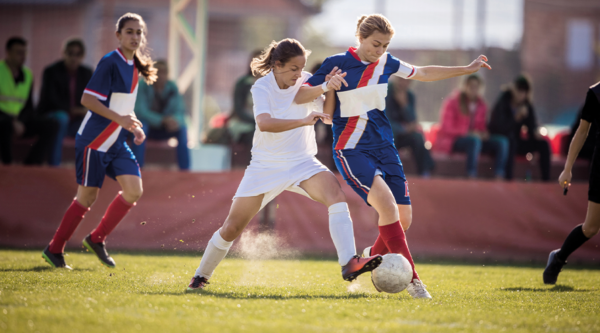
Tribunal delivers verdict in Manchester City’s challenge to the Premier League’s APT rules
15 October 2024

On Monday 7 October 2024, the independent tribunal delivered its verdict in the landmark legal case between Manchester City Football Club and the Premier League over the Associated Party Transaction (“APT”) rules.
By way of background, the APT rules were first introduced in 2021 following the takeover of Newcastle United by Saudi Arabia’s Public Investment Fund. At the time, other Premier League clubs expressed concerns that the new owners could potentially inflate sponsorship deals to gain a competitive advantage.
In other words, the other clubs were worried that Newcastle would now have the funds to buy some of the best players in the world, which could ultimately have a detrimental effect on the competitiveness of the Premier League.
The APT rules were therefore introduced to prevent clubs from artificially inflating their financial position through transactions with associated parties – essentially anyone connected to the relevant club. Under the APT rules, a club is required to submit details of its commercial or sponsorship deal to the Premier League for approval.
The Premier League assesses each transaction to determine whether it is at fair market value (“FMV”) or not. For context, each club is required to submit details of each of its sponsorship and commercial agreements to the Premier League, which the Premier League then uses when assessing whether a new transaction is at FMV or not.
Further amendments were made to the APT rules earlier this year, which several clubs, including Manchester City, did not agree with. Following such amendments, Manchester City challenged the legality of the APT rules, arguing that they were unlawful under both competition and public law. The club also contested specific decisions made by the Premier League regarding its sponsorship transactions with Etihad Aviation Group and First Abu Dhabi Bank.
Tribunal findings
While the tribunal determined that the APT rules are necessary to maintain sporting integrity and sustainability in the Premier League, it found certain aspects of the APT rules to be unlawful:
- Unlawful exclusion of shareholder loans: The tribunal ruled that the exclusion of shareholder loans from the scope of APT rules was discriminatory and unlawful. Shareholder loans, often interest-free, are a common method for club owners to invest in their teams. By excluding them, the APT rules created an unfair advantage for clubs with wealthy owners.
- Unlawful amendments to the APT rules: The tribunal found that certain amendments made to the APT rules in February 2024 were unlawful. In a nutshell, the amendments made it more difficult for a club to meet the FMV test.
- Procedural unfairness: The tribunal also found that certain aspects of the Premier League’s procedures were unfair. Manchester City argued that it was unable to comment on the comparable transaction data used by the Premier League to determine FMV, before the final decision was made. The tribunal agreed that this lack of transparency was procedurally unfair.
- Set aside sponsorship agreements: The tribunal set aside two specific decisions made by the Premier League regarding Manchester City’s sponsorship transactions with Etihad Aviation Group and First Abu Dhabi Bank. Essentially, the tribunal found that the Premier League’s decisions were procedurally unfair due to a lack of access to comparable transaction data and unreasonable delays in the decision-making process.
Implications for the Premier League and football
The tribunal’s ruling has significant implications for the Premier League and the broader football landscape:
- Amended APT rules: The Premier League will need to revise the APT rules to address the issues identified by the tribunal, including the inclusion of shareholder loans and ensuring procedural fairness. They have since called an emergency meeting to discuss the tribunal’s findings and next steps.
- Review of sponsorship transactions: The tribunal’s decision means that the Premier League will need to review the two sponsorship agreements between Manchester City and Etihad Aviation Group and First Abu Dhabi Bank. Manchester City will now have the opportunity to comment on the comparable transaction data used by the Premier League to assess the FMV of these deals. The Premier League will then need to make a new decision on whether these transactions comply with the revised APT rules.
- Impact on clubs: The decision could have significant implications for all Premier League clubs, particularly those that rely on shareholder loans or have entered into similar sponsorship deals. The revised APT rules may require clubs to reassess their financial strategies and potentially adjust their investment plans to account for any increased costs or limitations associated with shareholder loans. Additionally, the ruling may make it easier for clubs to challenge the Premier League’s decisions regarding APTs, potentially leading to more disputes and uncertainty.
A complex legal landscape
The Manchester City vs. Premier League case is a complex legal battle with far-reaching consequences. The tribunal’s ruling has challenged the status quo of financial regulations in English football and will likely lead to significant changes in the coming months and years.
The case also highlights the need for a careful balance between financial fair play and the interests of individual clubs. As the Premier League moves forward, it will be crucial to implement the necessary changes to ensure a fair and competitive playing field for all clubs.
Additionally, the ongoing investigation into Manchester City by the Premier League adds another layer of complexity to the situation. The outcome of this investigation could further shape the landscape of English football and the future of financial regulations.










